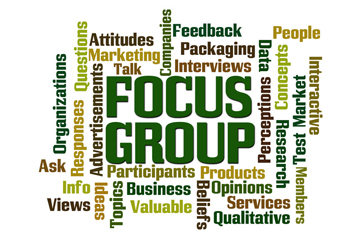
Why do Businesses Use Focus Groups?
Today, both big and small businesses use focus groups as a market research strategy in order to:
- Gauge the potential size of their market
- Evaluate potential customer reactions new products or services are introduced
- Collect information about the needs, motivation, and purchasing decisions of existing and prospective customers
Kraft Foods and Disney are examples of big organizations that have used this market research strategy to their advantage. Kraft encourages its employees to create focus groups to improve their marketing and they currently input ideas for new Kraft products using an app. Kraft also makes use of consumer focus groups to gather consumers who collaborate with moderators to develop and fine-tune marketing for the company.
Disney’s regular “kid-centric” focus groups comprise preschoolers and young children in schools near the company headquarters in Los Angeles. Among other things, these focus groups are aimed at discovering the type of characters the “toddler-to-kindergartner crowd” likes!
For a small business, a focus group may be a suitable market research strategy in the following circumstances:
- Starting a new business in a new market
- To get input during the development stage of a new product or service
- Testing new marketing approaches
- When other methods of market research fail to provide meaningful information
- To explore new ideas, formats and methods
- To understand the reasons underlying a specific action or lack of action
- To bridge the communication gap between your business and your target market
Focus group can help businesses avoid costly product launch blunders or unsuccessful advertising and marketing programs.
So how do you go about conducting a focus group for your business? You can get professional help or do it yourself. Here are the steps involved in conducting a focus group:
First, select the participants, preferably 6 to 10 people. These should be customers and prospects that mimic the target market you are trying to reach. Send each individual a questionnaire to get information about their age and interests. To ensure useful, objective data, make sure that the participants correspond to your market but are not too familiar with your business.

Depending on their budget and the time available, businesses may conduct multiple focus groups at different times. This will provide a wide range of responses from different audiences. Reliability is improved by collecting a large volume of data which can be evaluated to establish the validity and consistency of the results.
Once you’ve collected and analyzed the feedback, you can use it to make important decisions about the product or service that was discussed. For instance, if the majority of the focus group participants think that your product is not user-friendly, you can consider design changes to make it easier to use.
In a recent Forbes article, Gloria Horsley, founder of the Open to Hope non-profit foundation summed up how they use focus groups: “There are so many things to learn from each other that come from groups where people respond to others’ comments. This creates more meaning and understanding and even leads to new perspectives. Focus groups help us see how people interact in relation to what they are experiencing.”
Focus group data can be collected by either videotaping the session or handing out questionnaires. Video taping the session will allow you to see body language and give you a better understanding of how your potential audience may react. Recording the discussion and getting it documented using video transcription services will enable you to review the proceedings later. A reliable focus group transcription service provider will ensure that the observations and conclusions are accurately converted into text, without any omissions.
Unlock the power of your focus group discussions with our reliable transcription services.
Get started with a Free Trial!



